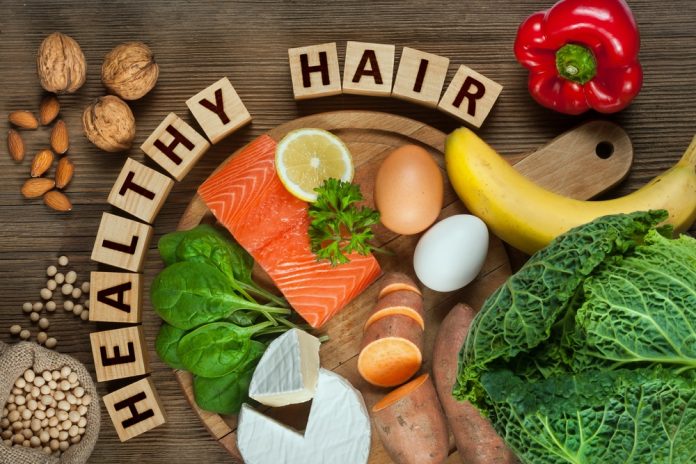Estimated reading time: 0 minutes
Folliculitis, characterized by inflamed hair follicles presenting as red, itchy bumps, can be as distressing as it is uncomfortable. Often triggered by bacterial or fungal infections or mechanical irritation such as shaving, this skin condition can escalate into painful boils and even lead to scarring. While medications and topical solutions are commonly prescribed for relief, integrating specific dietary modifications offers a natural and effective means of managing and even preventing the condition. This comprehensive look explores the role of nutrition in alleviating folliculitis and enhancing overall skin health.
Exploring the Link Between Diet and Folliculitis
The condition of our skin is often a reflection of our internal health, making diet a critical factor in the management of skin conditions like folliculitis. The right nutritional choices can strengthen the immune system, balance skin bacteria, and support the body’s regenerative processes, thereby influencing the severity and frequency of folliculitis flare-ups.
Nutritional Strategies to Combat Folliculitis
Implementing dietary changes can profoundly impact the body’s inflammatory responses and immune efficiency, crucial for combating folliculitis.
1. Enhancing Immune Function
A robust immune system is better equipped to fend off the pathogens responsible for folliculitis. Incorporating key nutrients can bolster immune defenses:
– Vitamin C: This potent antioxidant, found in fruits like oranges and kiwi, and vegetables like bell peppers and broccoli, helps protect and repair skin tissue while boosting immune responses.
– Vitamin E: An essential nutrient for skin health, Vitamin E can be sourced from almonds, spinach, and sunflower seeds. It aids in the healing process and strengthens skin barriers.
– Zinc: This mineral is vital for skin integrity and immune function. Rich sources include beef, pumpkin seeds, and lentils.
2. Adopting an Anti-inflammatory Diet
Reducing inflammation is crucial in managing folliculitis, as it directly impacts symptom severity:
– Omega-3 Fatty Acids: Foods rich in omega-3s, such as salmon, flaxseeds, and walnuts, have significant anti-inflammatory properties that can help soothe inflamed skin.
– Turmeric: Known for its curcumin content, turmeric is highly effective in reducing inflammation. It can be incorporated into the diet as a spice or consumed as a supplement.
– Berries: Blueberries, strawberries, and blackberries are loaded with antioxidants and vitamins that aid in reducing inflammation and supporting skin recovery.
3. Managing Blood Sugar Levels
Stable blood sugar levels help mitigate inflammation, crucial for controlling folliculitis:
– Whole Grains: Foods like quinoa, brown rice, and whole-grain bread provide sustained energy and help prevent blood sugar spikes.
– Fiber-Rich Foods: Vegetables, fruits, and whole grains are high in fiber, which moderates the absorption of sugar into the bloodstream, aiding in overall blood sugar management.
4. Nutrients Specific to Skin Health
Certain nutrients directly enhance skin health and resilience, potentially reducing the severity of folliculitis:
– Vitamin A: Crucial for skin repair, vitamin A can be found in carrots, sweet potatoes, and kale.
– Probiotics: These beneficial bacteria, available in yogurt and fermented foods like sauerkraut and kombucha, help maintain a balanced skin microbiome, which is essential for preventing bacterial infections.
Dietary Modifications to Prevent Folliculitis
Understanding which foods to avoid is just as important as knowing what to include:
– Reduce Sugary and High-Glycemic Foods: Minimizing sugar intake is crucial as high sugar levels can exacerbate inflammation.
– Limit Oily and Fried Foods: These can increase the risk of clogged pores and worsen skin conditions.
– Avoid Processed Foods: Often high in sugars, unhealthy fats, and chemicals, processed foods can trigger inflammation and disrupt immune function.
Practical Tips for Implementing Dietary Changes
– Stay Hydrated: Drinking adequate water is essential for maintaining skin hydration and assisting detoxification processes.
– Balance Your Meals: Ensure a healthy mix of macronutrients (proteins, fats, carbohydrates) in each meal to support overall health and skin function.
– Healthy Cooking Methods: Opt for cooking methods like steaming, boiling, or grilling rather than frying to minimize unhealthy fat intake.
Conclusion
Managing folliculitis extends beyond topical treatments; it requires a holistic approach that includes a thoughtful examination of dietary habits. By incorporating a diet rich in immune-boosting, anti-inflammatory, and skin-nourishing foods, and reducing intake of pro-inflammatory items, individuals can significantly improve their skin condition and potentially reduce the occurrence of folliculitis. A balanced diet, combined with appropriate medical treatments, offers a comprehensive strategy for managing symptoms and promoting healthier skin.
Related-
Know More About Ayurveda Treatment For Folliculitis
GET IN TOUCH


Recent comments